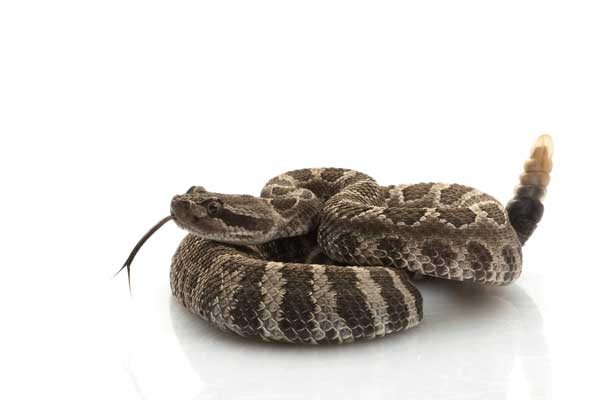By Cheryl Rahal, D.V.M. – (With sidenotes from Toby the clinic kitty)
Snake season—is there such a thing?
March and April usher in the kind of weather that makes the Valley the envy of the rest. Our beautiful warm days and clear skies means more time for longer walks and hikes with our pets, and it’s a safer time to leave your big dogs outside during the day. However, it’s also the time of year that rattlesnakes emerge from hibernation after the colder winter months, and when they emerge they are quite “hangry” searching for their next meal and traveling to establish their territory. The majority of the snake bite victims we see at The Pet Wellness Center are in these spring months.
How can you protect your pet from being bit by a rattlesnake? It’s difficult—many times even when we put our best efforts forward—it still happens. Here are three tips to help keep your pets safe from snake encounters.
- Snake-proof your yard. Keep your bushes trimmed and your yard free of debris. Consult your gardener or landscaper for more ways to prevent snakes from getting into your yard.
- Snake train your pet. We recommend “snake training” by a professional trainer. This is done by exposing your dog to live snakes (usually in a wire cage). These snakes provide the sensory input (smell, sound and sight) that dogs need to recognize them as the trainer teaches it as dangerous. The training also involves teaching what to do during a snake encounter—run away! An electric shock collar is used to simulate the pain of snake bite.
- Vaccinate your pet. Many veterinarians recommend the “snake vaccine” as an additional protection method for your dog or horse (it’s not yet labeled for cats). By vaccinating your pet we are creating on-board antivenin. Should your pet be bit by a rattlesnake, they still need to be treated by your veterinarian as soon as possible. Studies have shown that the snake vaccine creates a window of time (4-5 hours if properly vaccinated) to get home or off the trail to bring your pet to a hospital.

clinic kitty
Fact or Fiction: Cats are immune to rattlesnake venom. Here’s what Toby the clinic kitty has to say…
Cats being the superior species have lightning-fast reflexes, and sixth sense to know that rattlesnakes are deadly, so we just don’t bother with them. Although I have seen some poor fellow felines come to my clinic’s hospital suffering from snake bites. Surely cats are not immune, the wounds are much worse and I’m told it’s because of our small body size. That’s why I stay indoors. It’s safer, and the food is better.
Dr. Cheryl Rahal is a doctor of veterinary medicine at The Pet Wellness Center in North Phoenix. Her sidekick, Toby, spends his days alongside her at the clinic.

